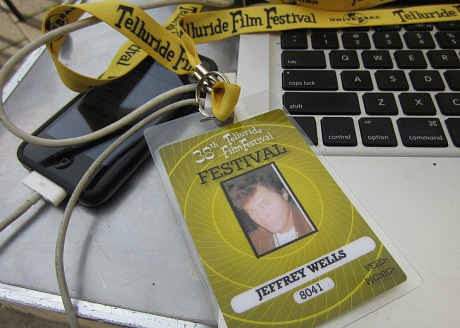Glenn Close gives a classic minimalist performance in Albert Nobbs. One defined by a restricted palette and limited moves, but no less expressive for that. The great Kristin Scott Thomas went to this well, of course, in I Loved You For So Long, and the legendary Steve McQueen (the dead one, not the director of Shame) was surely one of the reigning minimalist actors of the 20th Century. So there’s a tradition here, a realm, and Close knows exactly how to operate within it.
Awards Daily‘s Sasha Stone and I did a tag-team interview with Close about an hour ago inside the Chuck Jones theatre lobby, and I wish I had the time to describe it in some detail.
I noted the giving-less, showing-more tone of her performance, and asked what the difference was between playing Albert Nobbs on stage in the early ’80s and in the film. Stage acting is always a bit more expressive, but the central current in Nobbs’ character is trauma and repression — a woman who was brutally raped as a youth, who has hidden her identity, who’s constantly fearful of being discovered. So Close played it that way in both formats.
I recorded the chat and will elaborate upon the topics we covered later today or tonight, but you have to bang it out fast and move on when you’re covering a festival. No lounging around and sipping green tea as you carefully sculpt sentences and paragraphs.
I have to catch Werner Herzog‘s Into The Abyss doc at 12 noon…outta here.



















